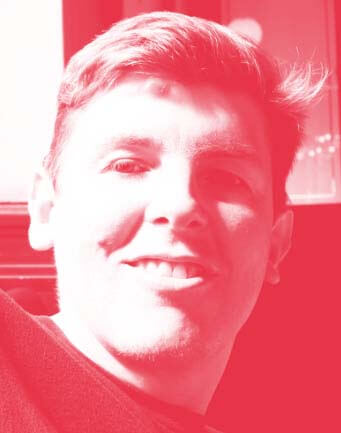Tony Veale
(University College Dublin)
Short bio:
Tony Veale is a research scientist and teacher whose principal research topic is Computational Creativity. Veale teaches Computer Science at University College Dublin (UCD), where he is an Associate Professor in the School of Computer Science, and has taught (for 13 years) as a visiting professor at Fudan University, Shanghai (as part of UCD’s international BSc. in Software Engineering, which
Veale helped establish in 2002) and at the Korean Advanced Institute of Science and Technology (KAIST), as an NRF-funded visiting professor in Web Science. Veale’s Computational Creativity work focuses chiefly on linguistic phenomena such as metaphor, simile, analogy, humour and irony. He has led the European coordination action on Computational Creativity called PROSECCO – Promoting the Scientific Exploration of Computational Creativity – which aims to develop the CC field into a mature discipline. He is the author of the 2012 monograph Exploding the Creativity Myth: The Computational Foundations of Linguistic Creativity, co-author of an 2016 monograph on Metaphor from Morgan Claypool, co-author of a 2018 textbook on creative Twitterbots for MIT Press, and principal co-editor of a multidisciplinary volume from de Gruyter titled Creativity and the Agile Mind. He was funded as a visiting professor by the Korean World Class University (WCU) programme at KAIST in Korea to study the convergence of Web Science and Computational Creativity. He provides educational content for creativity research at RobotComix.com and Githib.com/proseccoNetwork.
Title:
Making Machines That Make Meaning:
Exploring Spaces of Varying Dimensionality in Computational Creativity
Abstract:
Computational Creativity (CC) is the branch of AI dedicated to the generation of artefacts with novelty and value, where the search for value is often the search for meaning. inventive CC systems are not so much problem-solvers as meaning-makers, and nowhere is this observation truer than in language, the preeminent domain in which we humans seek out and make meanings. Linguistic creativity, the principal topic of this course, seeks to squeeze new or surprising meanings from the conventions of pure form, for when guided by the appropriate symbolic and/or statistical models, a seemingly superficial change in form often results in profound yet predictable changes in meaning. Conveniently, text is an especially malleable medium for human- and machine-creativity. It is, moreover, an almost unlimited, resource on the world-wide-web, which offers abundant, free-flowing channels of topical text for almost any genre or register. This course will explore diverse approaches to transforming these input channels into new and creative streams of machine-generated outputs. We shall begin with the specific kind of linguistic creativity needed for metaphor generation, before demonstrating how divergent approaches to metaphor invention can, in turn, enable divergent uses and applications for machine creativity more generally, ranging from CC systems that work with and integrate visual, topical and narrative meanings. In each case we explore the dimensionality of these meanings, and the best means of mapping between representations of varying sizes and complexity.
Other lectures:
Keynote lecturer:
Helder Coelho (University of Lisbon)
Other lectures (confirmed):
Luc Steels (Catalan Institute for Advanced Studies (ICREA)) |
Matteo Valleriani (Max Planck Institute for the History of Science) |
JJ Merelo (University of Granada) |
Jochen Büttner (Max Planck Institute for the History of Science) |
Nuno Sousa (University of Minho) |
Paulo Gomes (Critical Software)
